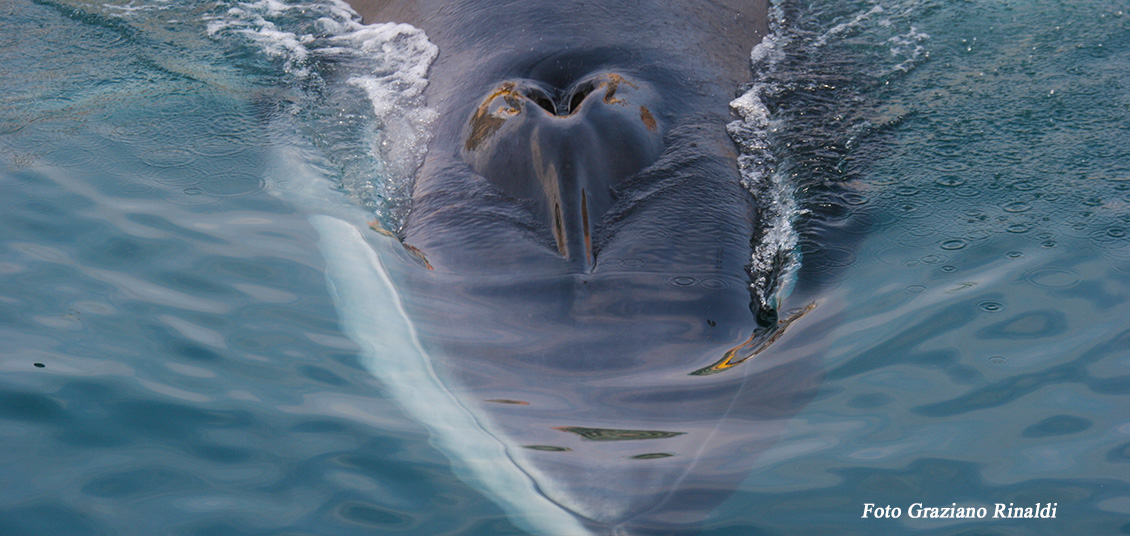
On June 6th 2007 I was lucky to find myself at the harbour of Portoferraio in the early morning. I was waiting for a friend with whom I would have to accompany students and their teachers on a visit to the island of Montecristo, a very fascinating destination, when something unexpected and even more surprising than the mysterious island described by Dumas father, appeared in the waters of the harbour: three whales entered and they could no longer leave.
Two whales were about fifteen meters long, the third one was a little smaller.
I had already observed dolphins and other marine mammals, even whales, but never so closely.
In fact, as soon as you enter in the harbour, one of the two larger ones passed several times right under the quay, no more than two or three meters from where I was waiting for my friend.
I could have taken memorable pictures!
I didn’t, I was almost in a trance.
The whale marched beneath me with all its tonnage, it was elegant and hieratic, I never imagined that such a huge animal could express such grace.
Since I write about it after so many years (but I remember it as if it were a few minutes ago), I want to say it all: it was maybe the emotion or the fact that I was almost alone on the pier in front of this peaceful giant that was coming and going towards me, but I had the impression … of a communication, yes, that’s what I said.
Given this, you will understand that what you will read from now on it is not neutral.
My first idea was to promote late spring and autumn on Elba Island with the fact that these are usually the periods in which whales can be spotted, as they move to seek nourishment.
I do not know if this post will rent some more apartments in the mid-season, but I would like to let you know that Elba is located in a privileged point of over 96.000 hectares of the Pelagos Sanctuary for the protection of Mediterranean marine mammals, where two species of large whales (sperm whale and common whale) along with six other cetacean species.
In a collapsing environment like ours, where more than ninety-nine percent of the individuals of all the whale species in the world have been killed, even knowing that in the same waters where you bathe in the summer, animals like that live here, I think it has already the value of an emotion.
Whales, in spite of their size, which could make them look a bit stupid, are extraordinarily sensitive from many points of view.
The best known thing is their singing, non-random sounds, but accurate and repeated rhythmic sequences, or songs, collected for the first time in 1970 in a long playing (before the digital it was the name of the cumbersome 33 rounds of vinyl) that sold more than one hundred thousand copies: Song of the Hampback Whale, some of these songs in 1977 were inserted between music and human greetings sent in space with the interstellar spaceship Voyager!
Given that in water the sound travels farther and faster than in the air, up to three hundred years ago these animals communicated with each other over a thousand kilometres away!
Can you imagine what the noise produced by mechanical navigation means?
The oceans had a voice, and whales, millions of whales, were the voice of the sea.
As well as singing (the whales count ten times higher of neurons deputed to the perception of sounds below 100 hertz, that is much lower than the more low notes of a piano) they have an extraordinary tactile sensitivity, cetaceans love to rub themselves among them exactly as many of humans, so much so that a specimen asleep on the surface can wince abruptly if a sea bird lands on its back!
Today it is a possible experience, but unlikely, I hope not to be too optimistic saying that one day, who live on the sea like us, buying in civilization and intelligence, we can invite you on Elba Island just to meet these wonderful creatures, I’ve had the experience of it, it’s something that gives birth to a love I didn’t know and that I’d like to share.
Graziano Rinaldi




